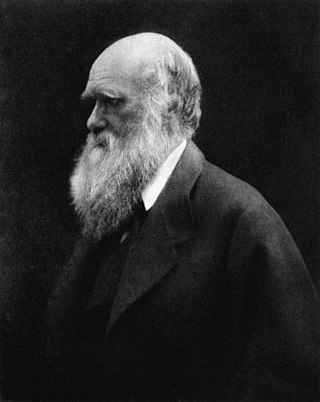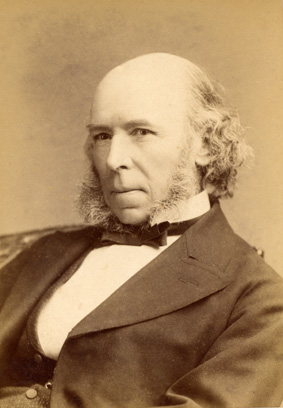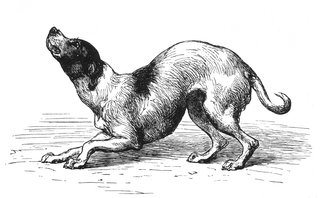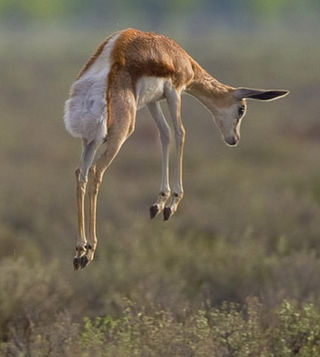Related Research Articles

Common descent is a concept in evolutionary biology applicable when one species is the ancestor of two or more species later in time. According to modern evolutionary biology, all living beings could be descendants of a unique ancestor commonly referred to as the last universal common ancestor (LUCA) of all life on Earth.

Darwinism is a theory of biological evolution developed by the English naturalist Charles Darwin (1809–1882) and others, stating that all species of organisms arise and develop through the natural selection of small, inherited variations that increase the individual's ability to compete, survive, and reproduce. Also called Darwinian theory, it originally included the broad concepts of transmutation of species or of evolution which gained general scientific acceptance after Darwin published On the Origin of Species in 1859, including concepts which predated Darwin's theories. English biologist Thomas Henry Huxley coined the term Darwinism in April 1860.

Evolutionary linguistics or Darwinian linguistics is a sociobiological approach to the study of language. Evolutionary linguists consider linguistics as a subfield of sociobiology and evolutionary psychology. The approach is also closely linked with evolutionary anthropology, cognitive linguistics and biolinguistics. Studying languages as the products of nature, it is interested in the biological origin and development of language. Evolutionary linguistics is contrasted with humanistic approaches, especially structural linguistics.
The teleological argument is an argument for the existence of God or, more generally, that complex functionality in the natural world which looks designed is evidence of an intelligent creator.

Social Darwinism is the study and implementation of various theories and societal practices that purport to apply biological concepts of natural selection and survival of the fittest to sociology, economics and politics, and which were largely defined by scholars in Western Europe and North America in the 1870s. Social Darwinism holds that the strong see their wealth and power increase while the weak see their wealth and power decrease. Social Darwinist definitions of the strong and the weak vary, and also differ on the precise mechanisms that reward strength and punish weakness. Many such views stress competition between individuals in laissez-faire capitalism, while others, emphasizing struggle between national or racial groups, support eugenics, racism, imperialism and/or fascism.

First formulated by David Hume, the problem of induction questions our reasons for believing that the future will resemble the past, or more broadly it questions predictions about unobserved things based on previous observations. This inference from the observed to the unobserved is known as "inductive inferences", and Hume, while acknowledging that everyone does and must make such inferences, argued that there is no non-circular way to justify them, thereby undermining one of the Enlightenment pillars of rationality.

"Survival of the fittest" is a phrase that originated from Darwinian evolutionary theory as a way of describing the mechanism of natural selection. The biological concept of fitness is defined as reproductive success. In Darwinian terms, the phrase is best understood as "Survival of the form that will leave the most copies of itself in successive generations."

Mary Beatrice Midgley was a British philosopher. A senior lecturer in philosophy at Newcastle University, she was known for her work on science, ethics and animal rights. She wrote her first book, Beast and Man (1978), when she was in her late fifties, and went on to write over 15 more, including Animals and Why They Matter (1983), Wickedness (1984), The Ethical Primate (1994), Evolution as a Religion (1985), and Science as Salvation (1992). She was awarded honorary doctorates by Durham and Newcastle universities. Her autobiography, The Owl of Minerva, was published in 2005.

In biology, adaptation has three related meanings. Firstly, it is the dynamic evolutionary process of natural selection that fits organisms to their environment, enhancing their evolutionary fitness. Secondly, it is a state reached by the population during that process. Thirdly, it is a phenotypic trait or adaptive trait, with a functional role in each individual organism, that is maintained and has evolved through natural selection.

Recurring cultural, political, and theological rejection of evolution by religious groups exists regarding the origins of the Earth, of humanity, and of other life. In accordance with creationism, species were once widely believed to be fixed products of divine creation, but since the mid-19th century, evolution by natural selection has been established by the scientific community as an empirical scientific fact.

The watchmaker analogy or watchmaker argument is a teleological argument which states, by way of an analogy, that a design implies a designer, especially intelligent design by an intelligent designer, i.e. a creator deity. The watchmaker analogy was given by William Paley in his 1802 book Natural Theology or Evidences of the Existence and Attributes of the Deity. The original analogy played a prominent role in natural theology and the "argument from design," where it was used to support arguments for the existence of God of the universe, in both Christianity and Deism. Prior to Paley, however, Sir Isaac Newton, René Descartes, and others from the time of the scientific revolution had each believed "that the physical laws he [each] had uncovered revealed the mechanical perfection of the workings of the universe to be akin to a watch, wherein the watchmaker is God."

Evolutionary ethics is a field of inquiry that explores how evolutionary theory might bear on our understanding of ethics or morality. The range of issues investigated by evolutionary ethics is quite broad. Supporters of evolutionary ethics have claimed that it has important implications in the fields of descriptive ethics, normative ethics, and metaethics.
Human nature is a concept that denotes the fundamental dispositions and characteristics—including ways of thinking, feeling, and acting—that humans are said to have naturally. The term is often used to denote the essence of humankind, or what it 'means' to be human. This usage has proven to be controversial in that there is dispute as to whether or not such an essence actually exists.

Anecdotal cognitivism is a method of research using anecdotal, and anthropomorphic evidence through the observation of animal behaviour.
Darwinian literary studies is a branch of literary criticism that studies literature in the context of evolution by means of natural selection, including gene-culture coevolution. It represents an emerging trend of neo-Darwinian thought in intellectual disciplines beyond those traditionally considered as evolutionary biology: evolutionary psychology, evolutionary anthropology, behavioral ecology, evolutionary developmental psychology, cognitive psychology, affective neuroscience, behavioural genetics, evolutionary epistemology, and other such disciplines.
Human science, also known as humanistic social science and moral science, studies the philosophical, biological, social, and cultural aspects of human life. Human science aims to expand our understanding of the human world through a broad interdisciplinary approach. It encompasses a wide range of fields - including history, philosophy, sociology, psychology, justice studies, evolutionary biology, biochemistry, neurosciences, folkloristics, and anthropology. It is the study and interpretation of the experiences, activities, constructs, and artifacts associated with human beings. The study of the human sciences attempts to expand and enlighten the human being's knowledge of its existence, its interrelationship with other species and systems, and the development of artifacts to perpetuate the human expression and thought. It is the study of human phenomena. The study of the human experience is historical and current in nature. It requires the evaluation and interpretation of the historic human experience and the analysis of current human activity to gain an understanding of human phenomena and to project the outlines of human evolution. Human science is the objective, informed critique of human existence and how it relates to reality.

Objections to evolution have been raised since evolutionary ideas came to prominence in the 19th century. When Charles Darwin published his 1859 book On the Origin of Species, his theory of evolution initially met opposition from scientists with different theories, but eventually came to receive overwhelming acceptance in the scientific community. The observation of evolutionary processes occurring has been uncontroversial among mainstream biologists since the 1940s.

Evolutionary thought, the recognition that species change over time and the perceived understanding of how such processes work, has roots in antiquity—in the ideas of the ancient Greeks, Romans, Chinese, Church Fathers as well as in medieval Islamic science. With the beginnings of modern biological taxonomy in the late 17th century, two opposed ideas influenced Western biological thinking: essentialism, the belief that every species has essential characteristics that are unalterable, a concept which had developed from medieval Aristotelian metaphysics, and that fit well with natural theology; and the development of the new anti-Aristotelian approach to modern science: as the Enlightenment progressed, evolutionary cosmology and the mechanical philosophy spread from the physical sciences to natural history. Naturalists began to focus on the variability of species; the emergence of palaeontology with the concept of extinction further undermined static views of nature. In the early 19th century prior to Darwinism, Jean-Baptiste Lamarck (1744–1829) proposed his theory of the transmutation of species, the first fully formed theory of evolution.

Teleology in biology is the use of the language of goal-directedness in accounts of evolutionary adaptation, which some biologists and philosophers of science find problematic. The term teleonomy has also been proposed. Before Darwin, organisms were seen as existing because God had designed and created them; their features such as eyes were taken by natural theology to have been made to enable them to carry out their functions, such as seeing. Evolutionary biologists often use similar teleological formulations that invoke purpose, but these imply natural selection rather than actual goals, whether conscious or not. Biologists and religious thinkers held that evolution itself was somehow goal-directed (orthogenesis), and in vitalist versions, driven by a purposeful life force. With evolution working by natural selection acting on inherited variation, the use of teleology in biology has attracted criticism, and attempts have been made to teach students to avoid teleological language.